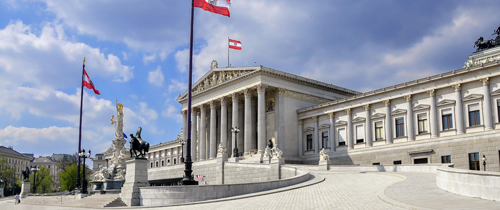France’s long-running pension dispute escalated on Monday night (23 June) after negotiations between trade unions and employers collapsed, prompting Prime Minister, François Bayrou, to call an emergency meeting this morning (24 June).
As reported by Reuters, the talks, described by the government as a “last chance” to build consensus, sought to address criticism of the 2023 pension reform, which raised the minimum retirement age from 62 to 64.
That law, pushed through by President Emmanuel Macron’s administration without a parliamentary vote, triggered mass protests and widespread public discontent.
Trade unions had demanded expanded early retirement options for workers in physically strenuous jobs and improved pension credit for maternity leave. However, employer groups, led by the Medef federation, refused to accept changes they viewed as fiscally irresponsible.
Medef president Patrick Martin stated the organisation had never asked for a reopening of the reform and warned against measures that could undermine the system’s financial balance.
"We were not asking for this reform to be re-examined. Our country needs to work more, and our country is in serious financial difficulty. At the rate things are going, we will soon be unable to pay pensions,” he said in a statement.
The developments come amid troubling projections for the pension system’s long-term solvency. According to forecasts by France’s independent Pensions Advisory Council (COR), the system is expected to run a deficit of 0.2 per cent of GDP by 2030, growing to 1.4 per cent by 2070 if no action is taken.
While the 2023 reform aimed to address this imbalance, unions and many public sector workers argue it disproportionately affects those with physically demanding or lower-paid jobs.
With formal talks now suspended, the Prime Minister summoned union and employer representatives to an emergency meeting on Tuesday (24 June) morning. As reported by Reuters, Bayrou said “all options” remain on the table as he seeks to reach a compromise.
His minority government is facing mounting political pressure, including threats of a no-confidence motion from opposition parties frustrated by the lack of transparency in the negotiation process.
Public opinion remains firmly opposed to increasing the retirement age. According to recent polls cited by Reuters, more than 60 per cent of French citizens continue to disapprove of the reform, which they see as both unfair and unnecessary.
Union leaders, meanwhile, have accused the government of engaging in bad faith dialogue, describing the latest negotiation round as “a masquerade,” as reported by Le Monde.
Latest News
-
More than one million Dutch retirees given pension increase since transition
-
I&P Denmark restructures following pensions director departure
-
Just Group underlying operating profit falls by 39%
-
News in brief: 27 February 2026
-
Sweden's AP3 reports 'record high' fund capital of SEK 577.1bn in 2025
-
NBIM ‘aiming to be a leader’ in managing climate change risks and opportunities
Podcast: Stepping up to the challenge

In the latest European Pensions podcast, Natalie Tuck talks to PensionsEurope chair, Jerry Moriarty, about his new role and the European pension policy agenda
Podcast: The benefits of private equity in pension fund portfolios

The outbreak of the Covid-19 pandemic, in which stock markets have seen increased volatility, combined with global low interest rates has led to alternative asset classes rising in popularity. Private equity is one of the top runners in this category, and for good reason.
In this podcast, Munich Private Equity Partners Managing Director, Christopher Bär, chats to European Pensions Editor, Natalie Tuck, about the benefits private equity investments can bring to pension fund portfolios and the best approach to take.
In this podcast, Munich Private Equity Partners Managing Director, Christopher Bär, chats to European Pensions Editor, Natalie Tuck, about the benefits private equity investments can bring to pension fund portfolios and the best approach to take.
Mitigating risk
BNP Paribas Asset Management’s head of pension solutions, Julien Halfon, discusses equity hedging with Laura Blows
© 2019 Perspective Publishing Privacy & Cookies








Recent Stories